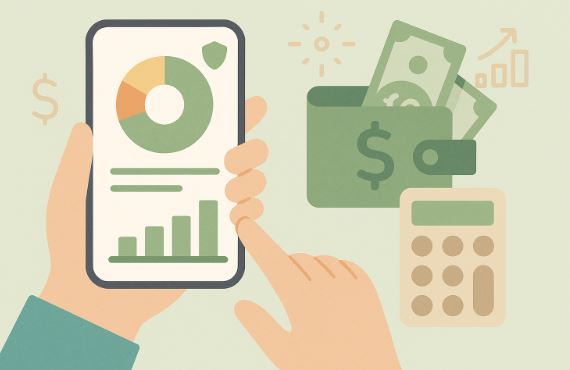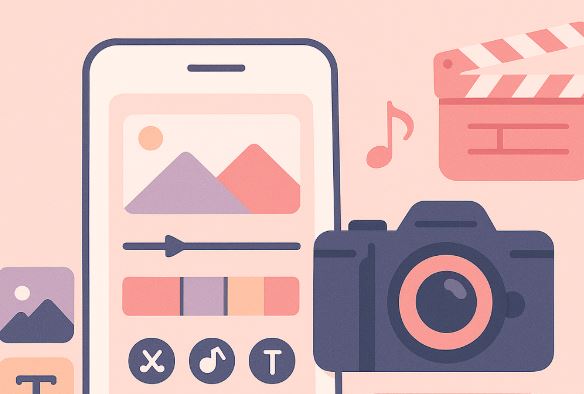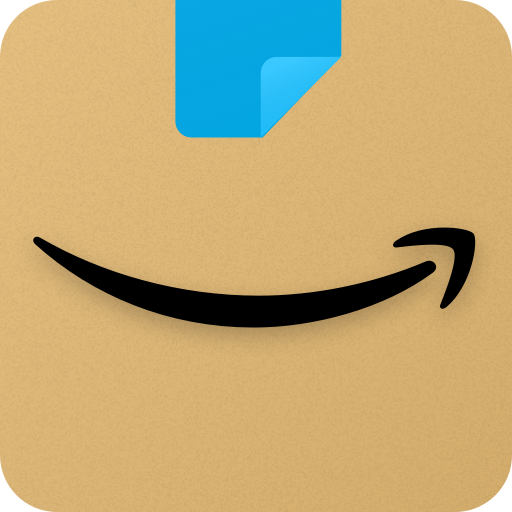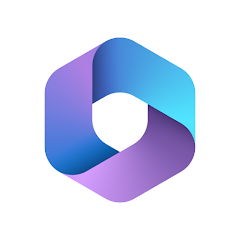10 Apps to boost your mental health
28th July 2024
Mike Mapley
In the contemporary context of a rapidly evolving society, the maintenance of mental well-being holds heightened significance. Various applications dedicated to mental health have emerged, offering a range of support services and self-care resources. These applications encompass features such as guided meditation sessions and avenues for connecting with mental health professionals, thereby contributing substantially to one's overall wellness.
The ensuing discourse will delineate the leading ten mental health applications adept at fortifying mental health. Furthermore, this article will proffer guidance on selecting an application tailored to one's individual requirements. Thus, it is imperative to delve into the utility of these applications and elucidate how their integration can augment one's holistic well-being.
Why is Mental Health Important?
The importance of mental health cannot be overstated in its influence on overall well-being and quality of life. It encompasses an individual's emotional, psychological, and social well-being, affecting cognitive processes, emotional responses, and behavioral patterns.
Effective coping mechanisms and emotional support are essential components in sustaining mental health, enabling individuals to adeptly navigate the various challenges that life presents. By utilizing mental health resources and tools, individuals can cultivate self-awareness and adopt healthier coping strategies, thereby enhancing emotional resilience and overall well-being.
A robust support system plays a significant role in providing solace during periods of adversity, aiding in stress management, and fostering positive mental health outcomes. Furthermore, engaging in activities that bring pleasure and relaxation contributes to mental well-being by offering moments of respite from everyday stressors and fostering a sense of equilibrium in one's life.
What are Mental Health Apps?
Mental health apps are digital platforms specifically designed to offer a variety of therapeutic resources, tools, and support for individuals seeking to enhance their mental well-being. These applications encompass a broad spectrum of features, including therapy sessions, stress management techniques, mindfulness exercises, and comprehensive assistance for mental health issues. They serve as a link between conventional therapy methods and digital health solutions, thereby enhancing the accessibility and convenience of mental health resources for users.
Through the utilization of these apps, individuals can partake in therapy sessions at their own discretion, engage in mindfulness practices during periods of stress, and receive immediate support for their mental health requirements. The user-friendly interface and the opportunity to access these resources from any location and at any time have significantly transformed the approach individuals take towards prioritizing their mental wellness.
The anonymity and personalized approach adopted by numerous mental health apps cater to a diverse audience of individuals seeking mental health assistance, establishing a secure and all-encompassing environment for exploring emotional well-being.
How Can Mental Health Apps Help?
Mental health applications play a key role in addressing a variety of mental health issues. Through the incorporation of health technology, these apps provide avenues for relaxation, self-improvement, and overall mental well-being. By utilizing these applications, individuals gain access to a wide range of tools and resources designed to improve their mental health and support personal development.
These applications not only facilitate relaxation techniques such as mindfulness and meditation but also assist in mood tracking, offer coping strategies, and provide virtual therapy sessions. Users are able to develop a deeper understanding of their mental health patterns, monitor their progress, and establish achievable objectives. The accessibility of these resources on smartphones or tablets allows users to promptly and proactively address their mental health concerns. Moreover, the confidential nature of these applications creates a secure environment for individuals to explore their feelings and thoughts.
1. Provide Tools for Self-care
Mental health applications provide a diverse range of tools designed for self-care, enableing individuals to partake in activities that foster mental well-being and personal development. These tools typically encompass educational materials, the provision of mental health services, structured programs for mental wellness, and a sense of community for individuals striving to improve their mental health.
Educational resources featured in these applications may encompass a variety of content, including articles and videos on coping mechanisms, guided meditation sessions, and stress management techniques. Users have the ability to access services such as therapy sessions, virtual counseling, and crisis helplines directly through the applications, thereby increasing the accessibility of support.
Structured programs offer personalized plans tailored to address specific mental health issues, such as anxiety, depression, or sleep disorders. Furthermore, the community engagement functionalities facilitate connections between users with similar interests, fostering mutual support and camaraderie.
2. Offer Guided Meditations
Guided meditations represent a prevalent feature within mental health applications, furnishing users with structured sessions for engaging in mindfulness and relaxation practices.
These guided exercises function as invaluable tools for augmenting mental well-being, providing support to individuals in search of respite and inner serenity amidst the pressures of daily life.
By integrating guided meditations into their daily regimen, users can foster a heightened sense of presence and mindfulness, aiding them in managing adverse emotions and attaining a state of tranquility.
The meticulously curated content within these applications can address a diverse array of requirements, including stress alleviation, sleep enhancement, and emotional grounding, thereby advancing mental clarity and overall wellness.
3. Track Mood and Symptoms
The monitoring of mood and symptoms serves as a vital function within numerous mental health applications, enabling users to oversee their emotional well-being and identify potential patterns that could impact their mental health. This functionality aids users in enhancing their mood and accessing suitable mental health assistance as required, thereby fostering a proactive approach to emotional wellness.
Through consistent monitoring, individuals can acquire a more profound comprehension of their mental state and behaviors, consequently leading to increased self-awareness and a better understanding of triggers or stress factors. By making use of mood and symptom tracking features, users can also monitor their progress over time, facilitating more effective communication with mental health professionals regarding their emotional well-being. These tools function as supportive resources in an individual's mental health journey, enableing users to take charge of their emotional well-being and make well-informed decisions regarding their mental health care.
4. Connect with Mental Health Professionals
Mental health applications present a valuable opportunity for users to connect with qualified mental health professionals, who offer personalized support and guidance. These platforms provide access to professional assistance, counseling services, and a supportive community of like-minded individuals facing similar mental health challenges. This environment fosters a sense of belonging and enables users to access expert resources.
The convenience of mental health apps lies in the ability of users to seek help at their own pace, addressing issues such as anxiety, depression, or stress. Through secure messaging and video sessions, users can receive therapy from the comfort of their own surroundings. The flexibility to schedule sessions according to personal availability allows users to prioritize their mental well-being alongside their daily commitments.
By offering a wide array of mental health resources, these applications enable users to take charge of their emotional well-being and take positive steps towards enhancing their mental health.
What are the Top 10 Mental Health Apps?
Explore the top 10 mental health applications designed to address a diverse array of mental health requirements, presenting innovative solutions for therapy, stress management, mindfulness, and holistic well-being. These applications have gained prominence due to their efficacy in supporting users' mental health journeys and furnishing readily accessible tools to improve emotional well-being.
Ranging from applications specialized in cognitive-behavioral therapy to those concentrating on meditation and relaxation techniques, these mental health applications offer personalized methods to aid users in navigating issues such as anxiety, depression, and other mental health concerns.
Equipped with functionalities such as mood monitoring, guided exercises, and virtual therapy sessions, users have the opportunity to partake in self-care rituals and track their advancements conveniently through their mobile devices.
The surge in popularity of these applications mirrors an emerging inclination towards seeking digital remedies for mental wellness, highlighting the significance of user-friendly and accessible tools in advocating for overall emotional well-being.
1. Headspace
Headspace is a well-known mental health application that specializes in meditation and stress management techniques. Featuring a user-friendly interface and an extensive collection of guided meditations, Headspace is designed to assist users in fostering mindfulness, reducing stress levels, and enhancing their overall mental well-being.
The application offers a diverse selection of themed meditation sessions, covering topics such as stress relief, concentration, sleep, and relationships. Users have the flexibility to select sessions based on their individual requirements and availability, facilitating the integration of mindfulness practices into their daily schedules.
Headspace includes features for tracking progress, aiding users in maintaining motivation and monitoring their meditation progression. By providing accessible and engaging meditation experiences, Headspace has established itself as a preferred platform for individuals seeking relaxation and mental clarity in today's fast-paced environment.
2. Calm
Calm is a well-known mental health application recognized for its comprehensive array of relaxation and coping resources. By offering a blend of soothing sounds, guided meditation sessions, and sleep-inducing stories, Calm is dedicated to fostering a state of relaxation, alleviating anxiety, and equipping its users with effective coping mechanisms to manage stress and improve overall well-being.
The application provides an assortment of mindfulness techniques and breathing exercises aimed at aiding users in unwinding and finding tranquility amidst the turbulence of daily life. By serving as a virtual sanctuary of serenity accessible at users' fingertips, Calm underscores the importance of prioritizing self-care and mental health.
Along with its auditory content, Calm incorporates visual components such as picturesque backgrounds and natural scenery to deliver an immersive and calming experience for its users. The customizable features of the app enable individuals to personalize their relaxation sessions according to their preferences and requirements, rendering it a versatile tool suitable for anyone in search of moments of peace and emotional equilibrium.
3. Talkspace
Talkspace is a prominent mental health application that provides online therapy and emotional support services. It facilitates the connection between users and licensed therapists for confidential counseling sessions, offering a convenient and accessible platform for individuals in need of professional mental health assistance and guidance.
The platform caters to a diverse range of mental health needs, encompassing issues such as anxiety, depression, stress management, and relationship challenges. Users have the flexibility to communicate with their therapists through text, voice, or video messages, allowing for varied engagement with their treatment. Talkspace aims to eliminate obstacles to mental health care by granting users access to qualified professionals round-the-clock, fostering open and candid conversations about mental well-being. Through consistent interactions with therapists, users can make progress in enhancing their mental health and attaining improved emotional wellness.
4. Moodfit
Moodfit is a comprehensive mental health application that emphasizes mood tracking and provisions for mental health resources. By permitting users to oversee their emotional wellness, establish objectives, and access pertinent resources, Moodfit aids individuals in comprehending their moods and seeking suitable mental health support.
Through its intuitive interface and adaptable functionalities, Moodfit allows individuals to monitor their daily moods, recognize patterns, and acquire insights into their emotional well-being. The application furnishes a diverse array of mental health resources, spanning from guided meditations and breathing exercises to articles on stress management and self-care methodologies. By furnishing a platform wherein users can actively participate in their mental health progression, Moodfit enables individuals to assume control over their emotional wellness and make well-informed choices to ameliorate their overall mental well-being.
5. Sanvello
Sanvello is a versatile mental health application that centers on self-improvement and mental wellness. Utilizing mood tracking, self-care activities, and cognitive behavioral therapy tools, Sanvello enables users to augment their mental well-being, cultivate resilience, and effectively navigate life's challenges.
Moreover, the application provides users access to a supportive community where individuals can engage with others undergoing similar experiences, fostering a sense of belonging and empathy. By furnishing a variety of resources such as meditation exercises, goal-setting functionalities, and progress tracking tools, Sanvello equips its users with the necessary resources to assume control of their emotional well-being and progress towards personal development and recovery.
6. Happify
Happify is a wellness-oriented mental health application that places a strong emphasis on positive psychology and stress management strategies. Through the provision of scientifically-supported activities and games, Happify serves to assist users in reducing stress levels, fostering resilience, and cultivating a positive outlook to enhance their emotional well-being.
This interactive platform has been meticulously crafted to enable individuals to proactively manage their mental well-being by engaging in exercises and challenges that are underpinned by evidence-based methodologies. Users are granted access to a diverse array of tools and resources that are customized to address their specific requirements, thereby enabling them to monitor their progress and acquire the necessary skills to navigate life's obstacles with an optimistic and resilient mindset. The interactive interface and tailored approach render Happify a valuable companion on the journey towards achieving a more gratifying and harmonious existence.
7. Youper
Youper is a cutting-edge mental health application that utilizes AI-powered conversations to provide personalized solutions and therapy. By employing cognitive behavioral therapy techniques and engaging users in emotional support dialogues, Youper strives to deliver effective mental health interventions and personalized support to individuals in need.
Through its AI capabilities, Youper can analyze user responses and behavior patterns to customize interventions that target specific emotional needs. The application guides users through self-reflection exercises, mood tracking, and goal setting to promote emotional well-being. By integrating evidence-based strategies, Youper aids users in developing coping mechanisms and fostering resilience. The user-friendly interface of the platform promotes consistent user engagement, resulting in ongoing progress and enhanced mental health outcomes. Youper's innovative approach signifies a transformation in how individuals can conveniently and effectively access tailored mental health support.
8. Moodnotes
Moodnotes is a mental health application designed to facilitate mood tracking and provide mental health support. With features that enable users to log their moods, analyze patterns, and gain insights into their emotional well-being, Moodnotes assists individuals in monitoring their mental health status and accessing appropriate support when necessary.
The user-friendly interface of Moodnotes offers a convenient method for users to document their feelings and thoughts, aiding them in recognizing triggers and patterns that influence their mood. Additionally, the application furnishes personalized insights and recommendations to assist users in comprehending and effectively managing their emotions. By promoting regular reflection and monitoring of mood fluctuations, Moodnotes enables users to take proactive measures towards enhancing their emotional well-being and overall mental health.
9. Wysa
Wysa is an AI-powered mental health application that is specialized in stress management and mental health resources. Through chat-based support, self-help tools, and cognitive behavioral techniques, Wysa aids users in managing stress, enhancing their mental well-being, and accessing valuable resources for emotional support.
With a variety of features such as mood tracking, relaxation exercises, and mindfulness techniques, Wysa strives to deliver a comprehensive approach to mental wellness. Users have the opportunity to engage in structured conversations with the AI chatbot, practice breathing exercises for relaxation, and acquire cognitive reframing strategies to alter negative thought patterns.
The user-friendly interface of Wysa facilitates easy navigation and utilization of these features for individuals seeking to cope with daily stressors or address more intricate emotional challenges. This application serves as a convenient and accessible tool for anyone in need of mental health support.
10. MindShift
MindShift is a specialized mental health application that offers coping mechanisms and emotional support for individuals dealing with anxiety and stress. Through cognitive restructuring tools, relaxation techniques, and anxiety management resources, MindShift enables users to overcome challenges, build resilience, and enhance their emotional well-being.
By providing users with personalized strategies to reframe negative thought patterns and manage stress effectively, MindShift cultivates a positive mindset and promotes the adoption of healthy coping mechanisms. The application's user-friendly interface and evidence-based practices render it accessible for individuals who are actively seeking to bolster their emotional resilience.
MindShift's extensive array of resources gives users access to the knowledge and tools required for sustained anxiety management. Users have the capability to monitor their progress, establish goals, and receive continuous support, thereby ensuring they remain committed to their mental health journey.
How to Choose the Right Mental Health App for You?
When selecting an appropriate mental health app, it is imperative to consider various factors, including the app's functionalities, one's specific mental health objectives, and the nature of support needed.
The assessment should encompass an evaluation of the app's user-friendliness, credibility, and compatibility with preferred therapeutic methodologies to ascertain that it aligns with expectations and offers the requisite tools for mental well-being.
Additionally, it is crucial to delve into the app's privacy policies to protect personal information and ensure the establishment of secure channels for communication.
The range of features provided by the app, such as mood tracking, meditation exercises, cognitive behavioral therapy tools, or communal support forums, should be examined to determine their resonance with the individual.
Moreover, the individual's preferred learning style, whether text-based information, audio sessions, interactive activities, or a blend of these methods, should be taken into account.
Lastly, reviewing user feedback and ratings can provide valuable insights into the effectiveness and satisfaction levels associated with the app.
What Are Some Tips for Using Mental Health Apps Effectively?
To optimize the advantages of mental health applications, it is advisable to establish a consistent schedule for app utilization, set attainable objectives, and actively interact with the features provided by the app itself. Demonstrating self-discipline in adhering to your mental health routine, seeking guidance from mental health professionals as necessary, and remaining receptive to exploring novel tools and strategies presented by the application for comprehensive well-being are essential practices.
Consistency plays a pivotal role in the effective utilization of mental health applications. By integrating these apps into your daily schedule, you establish a framework and a commitment to your mental health progress.
It is crucial to set realistic goals that are both specific and measurable, enabling you to monitor your advancements and sustain your motivation. Do not hesitate to seek advice and assistance from mental health professionals for tailored support.
Take advantage of the opportunity to uncover innovative features and methodologies within the application that can enrich your overall mental health journey.















